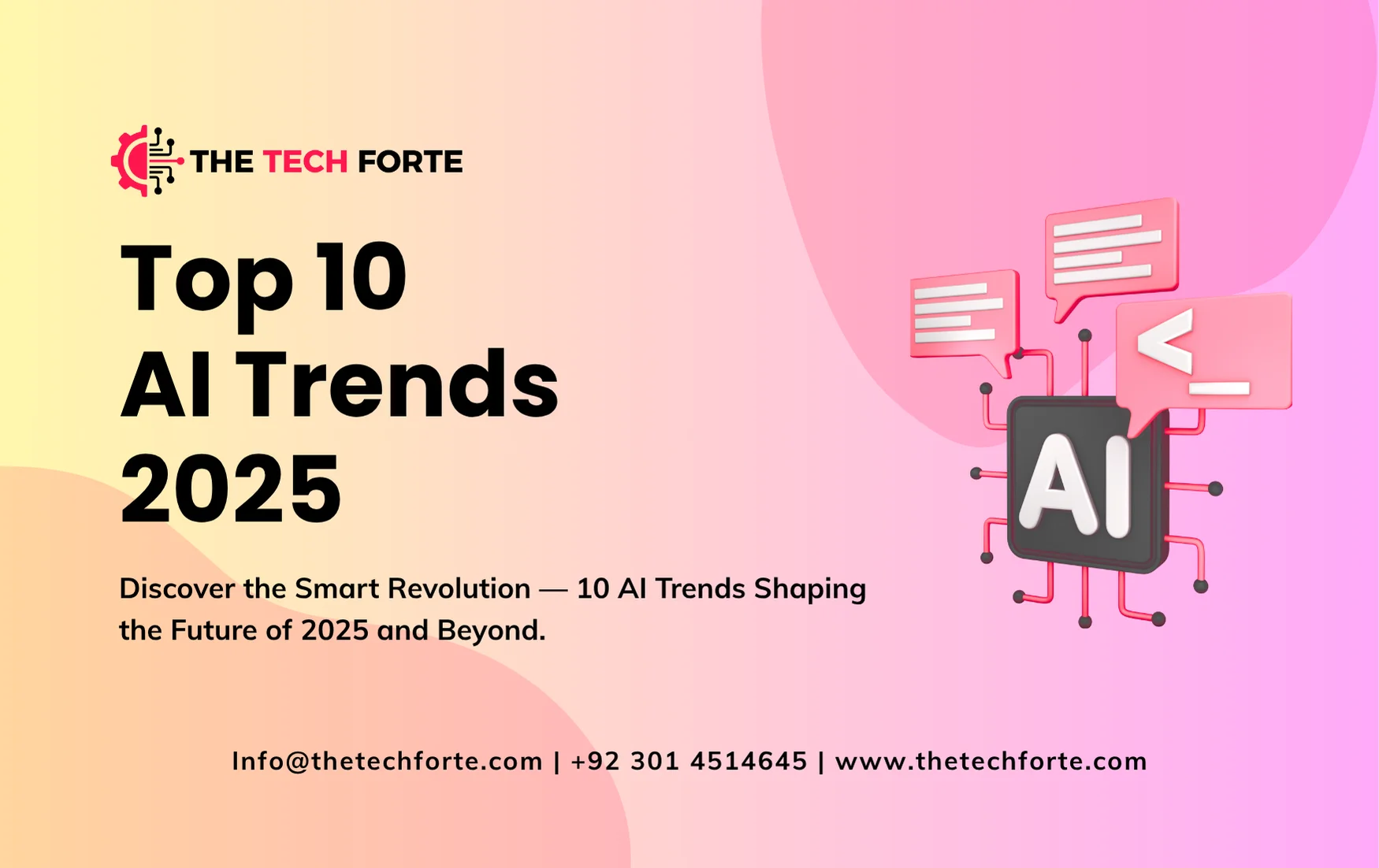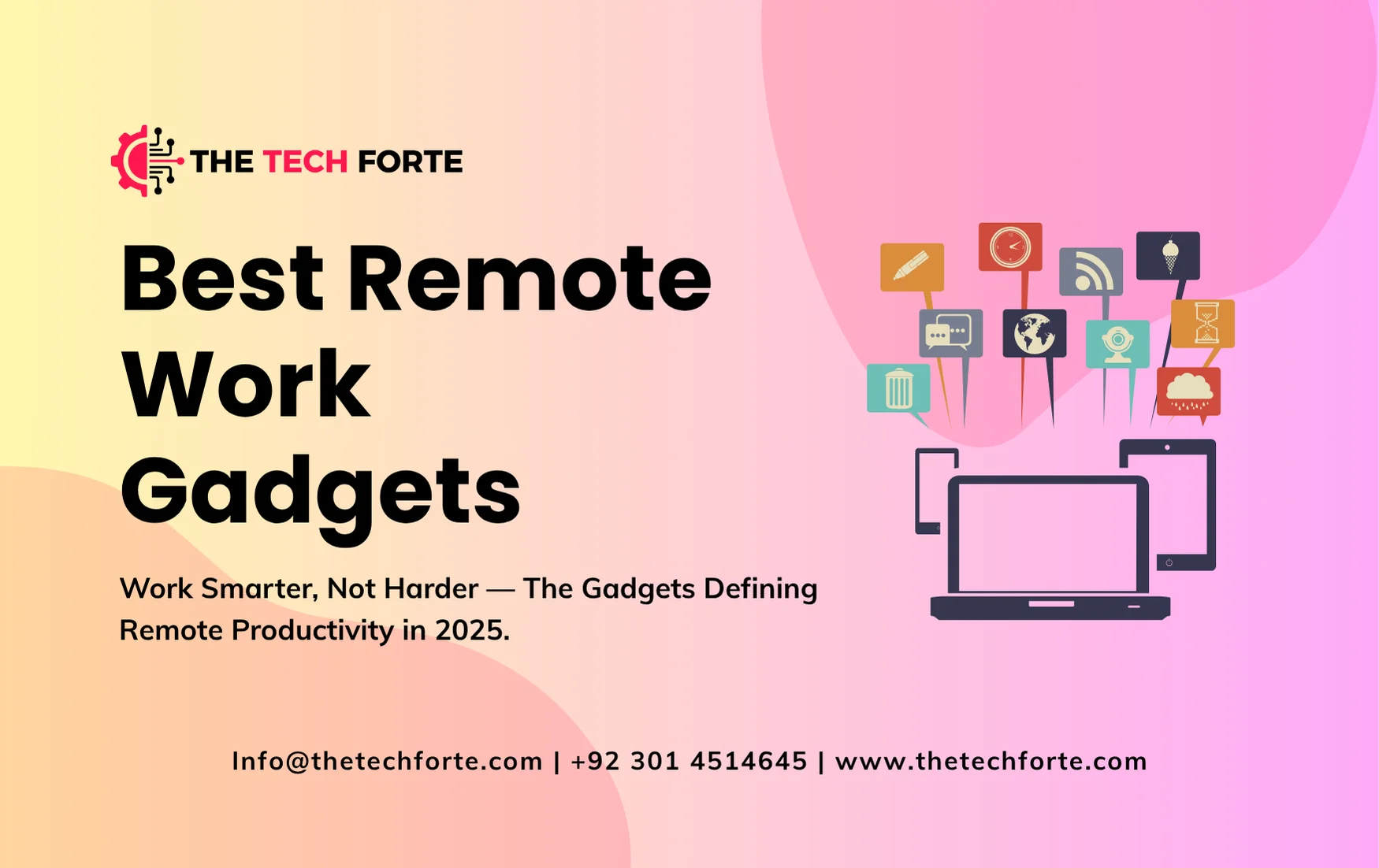
Top 10 AI Trends to Watch in 2025: The Future of Artificial Intelligence
Artificial intelligence is entering a new era where news about it seems genuine rather than speculative. Keeping pace with innovation is vital as the artificial intelligence trends 2025 are already influencing several sectors. In this article, we explore the emerging AI technologies, AI trends, top AI innovations, and latest AI developments that are redefining what’s possible. From business transformation to healthcare, education to ethics — the future of AI trends 2025 is not just smart, it’s deeply human.
Read More: 10 Best AI Tools for Bloggers in 2025
Generative AI Evolution: Beyond Text and Images
Generative models once specialized in text completion or image synthesis. Currently, the generative artificial intelligence development is moving into video, 3D design, music, and blended media. These systems can provide immersive experiences never before seen that combine storytelling, art, and interaction. Rather than replacing creative minds, these tools assist by accelerating early drafts, concept visuals, or even audio snippets. In the context of the latest artificial intelligence updates, the new frontier is where generative AI becomes an integral companion in creative workflows.
Agentic AI Trends & Autonomous Workflows
Agentic artificial intelligence describes systems that act semi-independently, making judgments, taking actions, and correcting mid-course. Automation has passed us by. As artificial intelligence automation tools develop, they grow more adept at choreographing tasks, watching processes, and learning over time. In 2025, we’ll see more of these intelligent agents in business operations, virtual assistants, and background software that anticipates your next move. This is a major shift in how we define productivity.
Edge AI & Tiny Models: Intelligence on the Device
One exciting curve in machine learning trends is bringing AI onto devices themselves. Local running of Edge AI and small ML models offers offline capability, fast response times, and improved privacy—vital for mobile, IoT, and embedded systems.
Instead of depending only on cloud servers, these new artificial intelligence innovations let AI live on your phone, drone, or sensor. This decentralization transforms our approach to the development of reactive systems by 2025.
Ethical AI Advancements & Explainability
Trust is vital as artificial intelligence grows more advanced. One of the strongest AI industry trends is pushing for ethical AI advancements and explainable models. Stakeholders will no longer be satisfied with “black box” systems; rather, openness, equity, and bias reduction are crucial.
Algorithms will progressively include audit trails, fairness tests, and user-facing explanations in 2025. To be sustainable, artificial intelligence’s future must be grounded in accountability.
AI Trends in Business 2025: Smarter Decisions, Not Just Faster Ones
Companies are now embedding artificial intelligence as a fundamental approach rather than employing it as a tool. Not only for automation, AI in business 2025 will be about guiding decisions using intelligence.
In sectors like finance, supply chain, and customer service, AI models are analyzing market shifts, consumer behavior, and real-time data to drive choices. The future predictions for artificial intelligence include AI as a strategic advisor sitting at the executive table.
Read More: How AI Is Transforming Business Operations
AI Trends in Healthcare 2025: Prediction, Prevention, and Precision
AI trends in healthcare 2025 are one of the most effective applications. AI is being used to forecast disease risk, customize therapies, and aid diagnosis from medical imaging. Recent artificial intelligence advances reveal that algorithms are now finding anomalies in scans ahead of human notice. These technologies improve early detection, lower doctor load, and precise treatments. The direction is toward proactive health management instead of reactive care.
AI Trends in Education: Personalized Learning at Scale
Education is being transformed through adaptive learning systems. AI in education now means content that adapts to a student’s pace, tutorials that fill knowledge gaps, and real-time comments. Some systems can detect tiredness or disorientation and modify the instruction midway. Empowering teachers with smarter tools will help to shape artificial intelligence 2025 in education rather than replacing them. These frameworks encourage inclusion and better results in a range of learning settings.
AI-Driven Marketing: Precision with Emotion
Marketing has always been about connecting with people — but AI-driven marketing in 2025 adds scale, emotion, and dynamic adaptation. To create customized campaigns, artificial intelligence systems today evaluate user behavior, context, and sentiment.
With predictive models, brands can run A/B tests at scale, change messaging depending on real-time input, and maximize spend. One of the greatest artificial intelligence advancements propelling brand expansion in the present age is this one.
AI Startups 2025: The Frontier of Niche Innovation
Many of tomorrow’s breakthroughs will come from AI startups 2025 tackling specialized problems — from climate modeling to mental health, from agriculture automation to legal AI. Their agility lets them push boundaries faster than larger incumbents. These AI future technology companies will define what’s next. Watching them offers insight into the development of new artificial intelligence over the next ten years.
The Societal Impact: Jobs, Ethics, and Responsibility
Addressing influence is essential in any compilation of artificial intelligence trends. The influence of artificial intelligence on occupations 2025 will be substantial; certain jobs will change, others will disappear, and new ones—prompt engineers, AI ethicists, data curators—will arise.
Society at large will similarly argue ethical AI, legislation, equality, and human-AI cooperation. Artificial intelligence’s destiny depends as much on our regulation of it as on its potential.
How Organizations Should Prepare: A Practical Checklist
- Analyze current systems to find automation possibilities.
- Reskilling initiatives focused on artificial intelligence literacy and prompt engineering should be supported.
- Adopt transparency tools (model explainers, fairness assays).
- Begin with pilot artificial intelligence initiatives in areas with little hazard. Create relationships among ethical, legal, and technical teams.
This tactical approach enables businesses to live—and flourish—among swift artificial intelligence transformation.
Read More: The Next Decade of AI: Predictions on Learning Models, Regulation, and Global Impact
FAQs
Really, concentrate on the trends affecting your daily life: generative artificial intelligence (for creative tools), automation (for business), and artificial intelligence in healthcare (for enhanced well-being). Just what makes your life simpler or your work smarter, you have to follow not everything.
It is already in process. Consider less mundane work, better suggestions, and quicker medical diagnoses. Though it will relieve us of the heavy lifting so we can concentrate on what is most important, artificial intelligence will not replace human contact.
Indeed, the best artificial intelligence solutions of 2025 are those that match your objectives. Write, learn ChatGPT or Jasper. Should you develop, give Runway or Midjourney a look. If you lead teams, investigate artificial intelligence automating solutions like Notion AI or ClickUp AI. To save time, not to replace your creativity, utilize them.
Not all. Repetitive and data-heavy jobs will shift, yes. However, roles that require empathy, storytelling, or strategy will grow. The smartest move you can make is to learn how to work alongside AI, not against it.
Whether in marketing, medicine, or art, it’s learning to read between the lines. That’s where the future of artificial intelligence really shines — when it starts to feel a bit more like collaboration than computation.
Conclusion
The AI trends 2025 are helping us dream, live, and work, as well as they are changing our lives, not just technical jargon. One thing is clear: whether you are a corporate leader, student, or someone just interested in AI trends 2025, it’s no longer about replacing humans but rather amplifying them. How should one get ready the best? Stay inquisitive. Experiment. Question. And keep in mind: the smartest artificial intelligence still is one guided by human intent and creativity.






